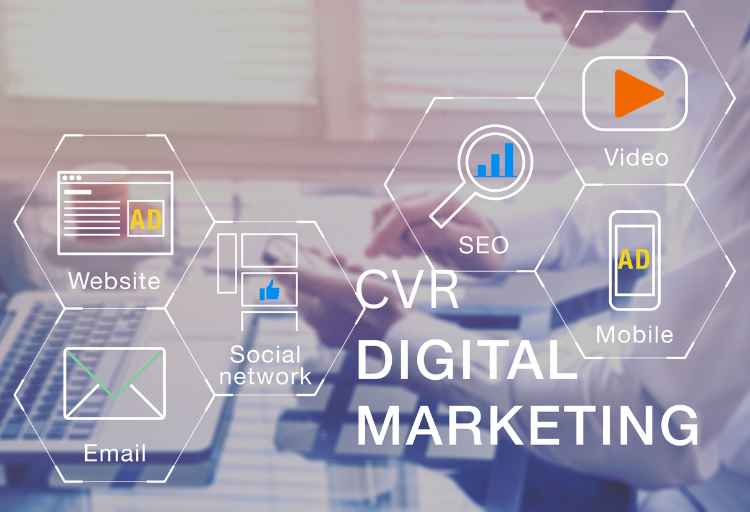How to Value a Digital Marketing Agency?
In the dynamic world of digital marketing, valuing a digital marketing agency accurately is a crucial task. Whether you’re a potential buyer, or seller, or simply assessing the agency’s financial health, understanding its true value is essential.
Contents
Factors to Consider in Valuation
Revenue and Profitability
At the core of valuing a digital marketing agency lies its revenue and profitability. These financial metrics provide a foundation for determining the agency’s worth. Key considerations include:
- Recurring Revenue: The presence of long-term contracts or retainer agreements with clients can stabilize cash flow and increase the agency’s value.
- Profit Margins: Healthy profit margins indicate efficient operations and can positively impact valuation.
- Revenue Growth Trends: Consistent and robust revenue growth is an attractive feature for potential buyers and can drive up the agency’s value.
Client Base
A significant aspect of valuing a digital marketing agency is its client base. Factors to consider include:
- Client Retention: Agencies with a high client retention rate often have more predictable revenue streams, which can enhance their value.
- Diversity of Clients: A diverse client portfolio reduces dependency on a single source of revenue, making the agency more resilient and attractive to buyers.
Team and Talent
The expertise and skills of the agency’s team play a pivotal role in its valuation:
- Specialized Skills: Agencies with a team of skilled digital marketers, designers, developers, and content creators are typically more valuable.
- Low Turnover: Low employee turnover can signal a stable work environment and enhance the agency’s value.
Intellectual Property
Intangible assets, such as proprietary tools, marketing strategies, and data assets, can significantly contribute to the agency’s value. These assets may include:
- Proprietary Software: Custom-built tools and software can provide a competitive edge and add value.
- Unique Marketing Approaches: Distinctive methodologies and strategies that yield exceptional results can be an intangible asset.
- Data and Analytics: Comprehensive data sets and analytics capabilities are highly prized in the digital marketing space.
Valuation Methods
Multiple of Earnings
The multiple of earnings method involves applying a multiplier to a financial metric, such as Earnings Before Interest, Taxes, Depreciation, and Amortization (EBITDA), to determine the agency’s value. Key points to note include:
- Multiplier Selection: The choice of the multiplier depends on industry standards, agency size, and profitability.
- Earnings Basis: EBITDA is commonly used, but other metrics like seller’s discretionary earnings (SDE) or gross profit may be suitable for some agencies.
Market Comparison
Comparing the agency’s metrics and financials to those of similar digital marketing agencies that have recently been sold can help gauge its value. Considerations include:
- Comparable Sales Data: Analyzing sale prices, revenue multiples, and terms of recent agency sales in the same industry or niche.
- Adjustments: Adjusting the agency’s metrics to align with those of comparable sales for a more accurate valuation.
Discounted Cash Flow (DCF)
The discounted cash flow method calculates the present value of the agency’s expected future cash flows, taking into account factors such as growth rates and risk. Key aspects include:
- Cash Flow Projections: Creating realistic cash flow projections based on historical performance and growth expectations.
- Discount Rate: Determining an appropriate discount rate to reflect the time value of money and the agency’s specific risk profile.
Intangible Assets and Goodwill
Client Relationships
One of the most valuable intangible assets for a digital marketing agency is strong and enduring client relationships. The goodwill generated from these relationships can substantially increase the agency’s value. Long-term contracts, client testimonials, and a history of successful campaigns can all contribute to goodwill.
Reputation and Brand
A positive reputation and a strong brand image can also add to the agency’s intangible assets. A well-regarded agency with a recognized brand is more likely to attract clients and retain talent, enhancing its overall value.
Operational Efficiency and Scalability
Efficiency and scalability are essential factors in valuation:
- Efficient Processes: Streamlined and efficient workflows, project management, and resource allocation can improve profitability and overall value.
- Scalability: Agencies that can easily scale their operations to accommodate increased demand are considered more valuable. Scalability often requires robust processes and infrastructure.
Industry Trends and Market Conditions
External factors, such as industry growth and market conditions, can influence the valuation of a digital marketing agency:
- Industry Growth: Agencies operating in rapidly growing segments of the digital marketing industry may receive higher valuations.
- Market Competition: A competitive market may impact valuations, with buyers potentially willing to pay more for agencies with a strong market position.
Legal and Regulatory Considerations
Contracts and Agreements
The terms and conditions of client contracts, employee agreements, and vendor contracts can affect the agency’s valuation. Considerations include:
- Client Contracts: The duration, terms, and revenue associated with client contracts can significantly impact valuation.
- Employee Agreements: Non-compete and non-disclosure agreements may affect the agency’s value, particularly if key team members are involved in the sale.
Due Diligence and Valuation Experts
Due Diligence Process
Valuing a digital marketing agency involves a comprehensive due diligence process:
- Financial Audits: Conducting financial audits to verify the accuracy of financial statements and reports.
- Legal Reviews: Evaluating contracts, agreements, and legal compliance to identify potential risks.
- Client Assessments: Reviewing client relationships, contracts, and client satisfaction to gauge the stability of revenue streams.
Hiring Valuation Experts
For a more accurate and impartial valuation, many agencies choose to hire valuation experts or consult with financial professionals. These experts can provide a thorough analysis, taking into account industry-specific factors and market conditions.
Conclusion
In conclusion, valuing a digital marketing agency is a multifaceted endeavor that requires a deep understanding of financials, client relationships, intangible assets, and industry dynamics. Accurate valuation is essential for making informed decisions, whether you’re looking to buy, sell, merge, or assess the agency’s financial health. By carefully considering the factors outlined in this guide and conducting rigorous due diligence, stakeholders can determine the true worth of a digital marketing agency in today’s competitive marketplace.






